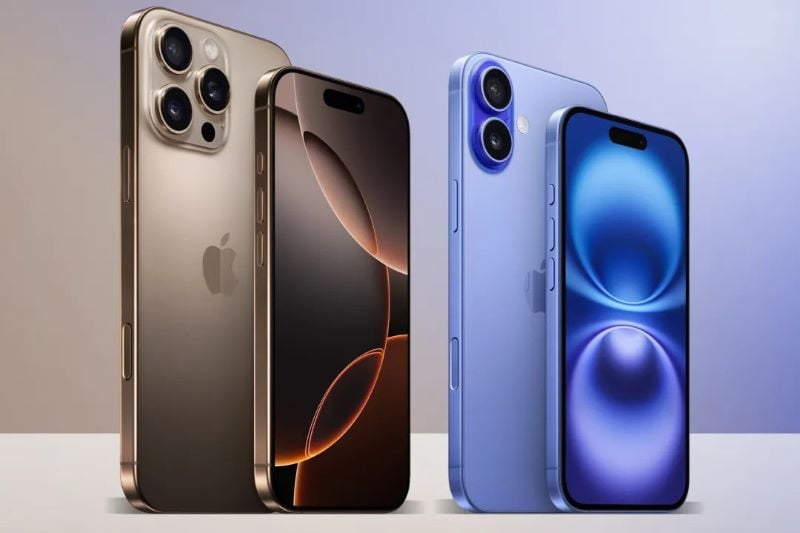
If you're upgrading to the iPhone 16, the next decision is which model to choose. Apple offers four versions: iPhone 16, iPhone 16 Plus, iPhone 16 Pro, and iPhone 16 Pro Max. Prices range from $829 for the base model to $1,199 for the top-tier Pro Max.
This guide will help you understand the differences and similarities between each version to make an informed choice. All models are currently available for preorder, with an official release date of 20th September.
Our advice on upgrading is to only do so if necessary. If your current phone still works well but has battery issues, consider replacing the battery through Apple’s replacement service. If, however, you're finding your phone increasingly difficult to use, an upgrade may be warranted.
Like the iPhone 15 series, the iPhone 16 models all feature a USB-C port, and later in the year, they will support Apple Intelligence, a suite of artificial intelligence features. If this new technology interests you, or if you simply want to try it out, an upgrade could be beneficial.
Which iPhone 16 Should You Choose?
The iPhone 16 line-up includes the iPhone 16, iPhone 16 Plus, iPhone 16 Pro, and iPhone 16 Pro Max. The primary difference between the iPhone 16 and 16 Plus is screen size, and the same goes for the iPhone 16 Pro and Pro Max. Larger models, such as the Plus and Pro Max, typically offer better battery life, with Apple claiming the Pro Max has the best battery performance of all.
Each model also features the new configurable Action button, replacing the Mute switch, which can be programmed to perform tasks such as turning on the flashlight or launching the camera. Additionally, the Camera Control button allows you to change camera modes or zoom settings with a light press.
A standout new feature is **Audio Mix**, which gives users greater control over video soundtracks. Options like "In-Frame" and "Studio" adjust the focus and background noise, with Pro models offering superior performance due to enhanced microphones. The entire iPhone 16 range also comes with updated Photographic Styles, allowing for better control over skin tones and other image elements, setting them apart from similar features found on rival devices.
Apple Intelligence
Apple Intelligence is a key feature of the iPhone 16 and iPhone 15 Pro ranges. This includes a revamped Siri, emoji generation (Genmoji), and advanced writing assistance. If you're keen on exploring Apple’s AI advancements, one of these newer models is required.
All iPhone 16 models come with OLED displays boasting a peak brightness of 2,000 nits, IP68 water resistance, and Apple’s Ceramic Shield for enhanced durability. MagSafe wireless charging is also included, supporting the new Qi2 standard for faster charging and greater accessory compatibility.
Detailed breakdown of each model
- **iPhone 16 ($829):** The iPhone 16 comes with a 6.1-inch screen and is powered by the A18 processor, which offers a 30% improvement over the iPhone 15. Its 12-megapixel ultrawide camera has also been enhanced with autofocus, enabling macro photography.
- **iPhone 16 Plus ($929):** Essentially the same as the iPhone 16 but with a 6.7-inch screen and a larger battery, it’s designed for users who prioritise battery life.
- **iPhone 16 Pro ($999):** This model features a 6.3-inch screen with slimmer bezels and is constructed from titanium for improved durability. Its ProMotion display refreshes at 120Hz, ensuring a smoother experience, and its A18 Pro chip offers faster processing and better gaming performance.
- **iPhone 16 Pro Max ($1,199):** The Pro Max is equipped with a 6.9-inch screen and is marketed as having the best battery life. Its 48-megapixel Fusion camera captures moving subjects more effectively and performs better in low light. This model also includes advanced video features such as ProRes capture and Night mode portraits.
Additional Options
If the iPhone 16 range doesn't appeal to you, Apple still offers older models like the iPhone 15 ($699) and iPhone 14 ($599). The iPhone SE (2022) remains an option at $429, though a refresh is expected in early 2025.
If you're considering purchasing a new iPhone, we recommend buying it unlocked, as this provides the flexibility to switch carriers easily. Bear in mind that iPhones no longer feature physical SIM card slots and instead use eSIM technology.
In conclusion, while the iPhone 16 series offers several compelling reasons to upgrade, you might still find excellent value in older models or even refurbished phones from platforms like Swappa or Gazelle.


1732003896-0/Zendaya-(1)1732003896-0-165x106.webp)
1731914690-0/trump-(26)1731914690-0-165x106.webp)
1732003946-0/BeFunky-collage-(70)1732003946-0-165x106.webp)



1731838555-0/BeFunk_§_]__-(5)1731838555-0.jpg)










1731749026-0/Copy-of-Untitled-(3)1731749026-0-270x192.webp)






COMMENTS
Comments are moderated and generally will be posted if they are on-topic and not abusive.
For more information, please see our Comments FAQ